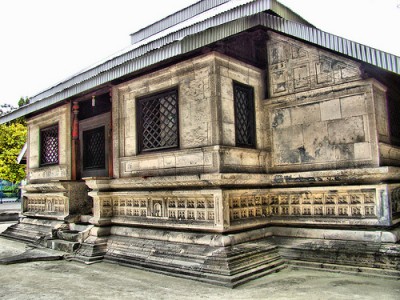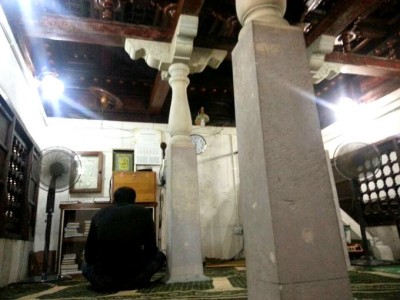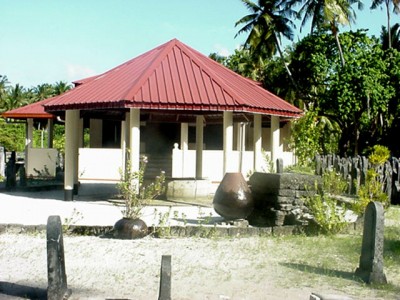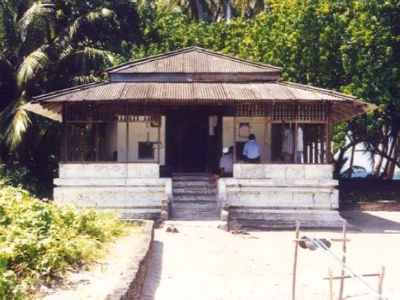CEO of the Capital Market Development Authority (CMDA) Fathimath Shafeega believes the Maldives to be “ideally placed” to play the role of an international financial centre.
Describing the country as strategically well-placed, the head of the independent regulatory authority noted that the country’s nascent financial framework was both a weakness and a strength.
“We don’t have regulations hindering a lot of things,” noted Shafeega. “We can start from a clean slate.”
“But parliament needs to be very much involved in it. We might need to provide the software – laws and regulations and other policy frameworks – while investors can bring the hardware.”
Senior members of both the previous and the current administration have considered the development of offshore banking services as a way to diversify an economy heavily reliant on tourism.
“It’s very much still on the agenda,” said Shafeega.
Shafeega spoke with Minivan News following the release of the CMDA’s first quarterly report in 2014, which revealed the authority’s work this year had focused on drafting legislation to further modernise the market, as well as amending the Corporate Governance Code in order to increase gender diversity on the boards of publicly listed companies.
Islamic Finance
Established by the Maldives Securites Act in 2006, the CMDA’s quarterly report for the first time included details of the Islamic Capital Market – an area the report describes as having an “ever-green future in the Maldives”.
Indeed, Shafeega argued that the successful establishment of an Islamic Capital Market – featuring Shariah compliant financial products – would also add to the Maldives appeal as a future financial hub.
Introducing the quarterly update on the Islamic Capital Market development, Deputy Islamic Minister Dr Aishath Muneeza, argued that there was now a “global movement towards the creation of financial transactions based on underlying activities or underlying assets.”
“Relying on real economic activities has been the success secret of Islamic finance and now we are being forced to find innovative ways to adopt this method,” said Dr Muneeza.
Under Islamic Shariah, any risk-free or guaranteed rate of return on a loan or investment is considered riba, which is prohibited in Islam.
Also chair of the Capital Market Shariáh Advisory Council (CMSAC), Dr Muneeza this quarter became the first person granted Shariah advisor registration status in the Maldives.
CMSAC was created in December 2013 in order to advise the CMDA on the development of an independent Islamic Capital Market.
The council’s activities this quarter included the formulation of a five year plan to increase the availability of Shariah compliant services, raise awareness of Islamic finance, and establish an Islamic Finance Centre in the Maldives.
Writing for the Islamic Finance News website in March, Dr Muneeza described Islamic Finance as “spreading like wildfire” since the introduction of Islamic banking and capital market services in 2011.
“It is hoped that in the upcoming years the Maldives can be used as a global case study to prove the success of Islamic finance,” she wrote.
Pensions
Shafeega also expressed confidence that the state pension fund – for which the CMDA plays a supervisory role – can soon successfully diversify its investment portfolio.
“As you know the pension system in Maldives has assumed that there will be a developed capital market. The development of the capital market has not kept pace with the pension development.”
Beginning in March this year, the government more than doubled the monthly pension – with individuals aged over 65 now receiving MVR5000.
The government had allocated MVR470 million (US$30.5 million) in the state budget to give out an MVR2,300 (US$149) in cash handouts, with head of the Cabinet’s Economic Council Ahmed Adeeb stating that “innovative” investment would prevent the need to divert funds from within the current budget.
The CMDA quarterly report noted that research had been carried out in order to ascertain potential avenues for investment beyond government or listed securities – the only options currently utilised.
“For the pension fund to be able to generate a good return for the members, we need to diversify the pension investment,” Shafeega told Minivan News.
“We need to find alternative investment that can generate a good return”
Shafeega also expressed confidence that the additional revenue could be realised, revealing that – following the authority’s recommendations – the government was planning to introduce changes to the Pensions Act during the 18th Majlis.




